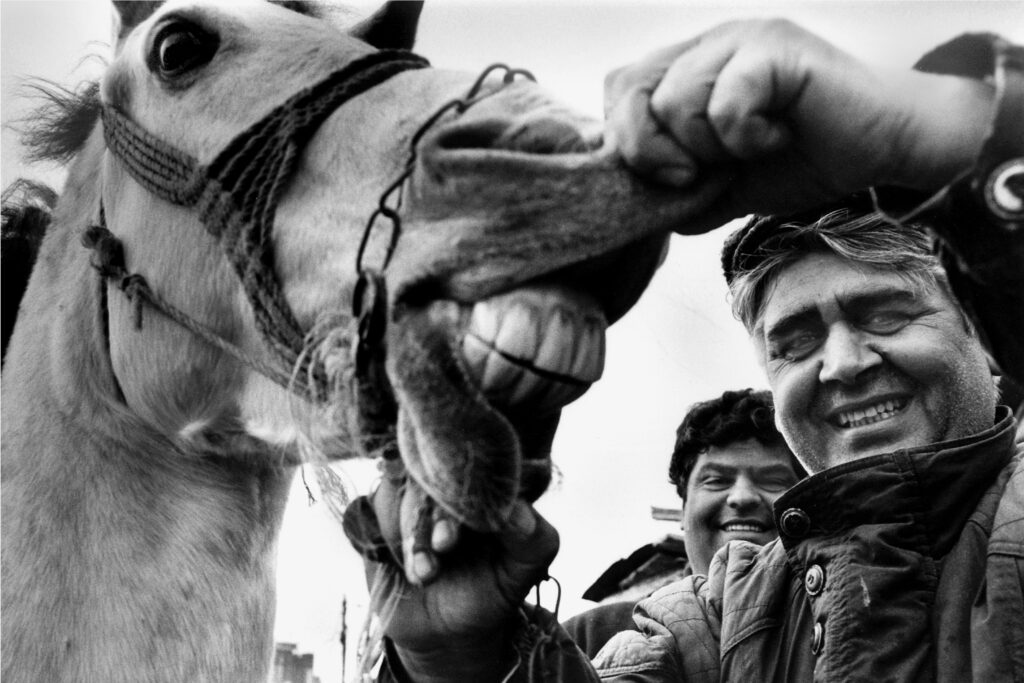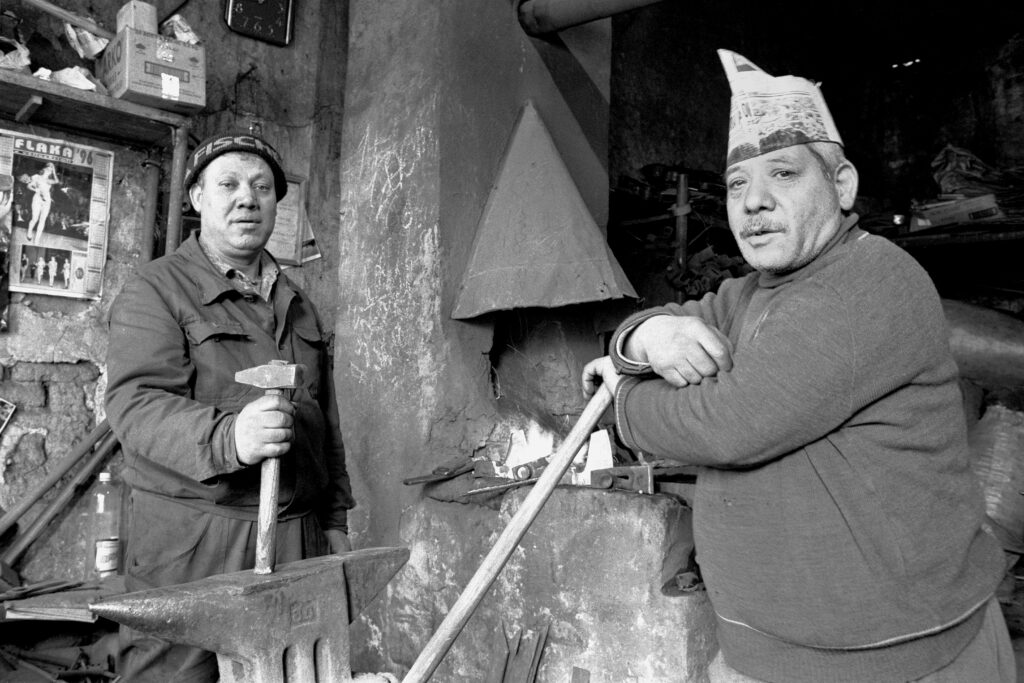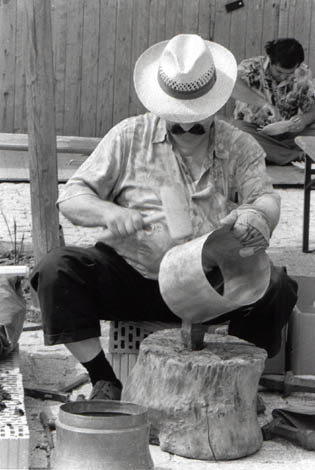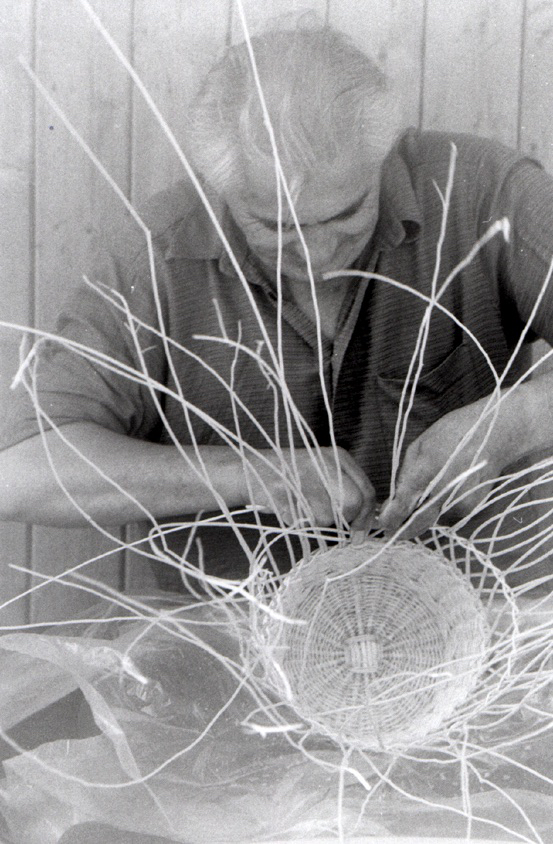Groups and Trades
Traditional trades are inseparable from Roma groups, for these traditional trades formed one of the strongest basis of group identity. More important, work, most often in the form of trades are an integral part of the Roma identity. It is almost unthinkable, even when wealthy, not to work. After all, the family and to a lesser extent the lineage all rely upon each individual providing his or her share of the work. The various meanings of the word butji – work in Romanes – indicate that work is part of one’s identity. While it means work in general, some Roma groups use it only when speaking about smith-work. Should you ask a Crimean Rrom “savo xizmeti keres?” – which trade do you practise?-, he’ll answer “kerav butji” – literally “I work” – which means “I’m doing smith work”. In these Crimean Roma dialects, the word butjari means a smith.
Traditional trades, perhaps with the exception of fortune-telling, one of the most prevailing cliche among Gadže, is a man’s work. Women, more often than not, help their husbands, brothers and fathers at work.
There are several lines of traditional trades among Roma groups: Metal work divided into copper and blacksmiths; Horse-dealing; Music as a trade (not to be mistaken for Roma music!); and Wood and miscellany.
One should not think as these a strict subdivisions, as it often happens that blacksmith work goes hand in hand with professional music, for example among Carpathian Roma. In addition, Roma, throughout the ages have taken odd jobs to complement their incomes and have proved highly adaptable to more modern technologies.
Nowadays, one finds Roma in all trades, lawyers, doctors, scholars but also car mechanics, farmers and so on. This may seem as peculiar or even surprising but the fact that Roma have taken all professions is not new. As early as the XVth century, the Ottoman tax registers document Roma in many trades and professions not necessarily associated with Roma.
Horse Trading

In all European countries, Roma where also known as horse-dealers and more generally as specialists in that trade. The best known ones are Northern European Roma. Along this, let us say that the word grast (or graj) – a horse is not of Indian origins but comes from Armenian. The only words of Indian origin referring to horses and remaining nowadays in Romanes are khuro/khuri – a colt.
This indicates that Roma got seriously involved in horse trading while living in the Armenian territories. Horse trading was the main profession for Roma in Poland, the Baltic States and Russia. In Russia, the Tsar’s army exclusively bought horses from Roma. The large number of horses they had to provide meant that many of these Roma spent the summers travelling from town to town. Lovara had a similar status in Hungarian lands.
Blacksmiths
The profession of smith is one of the oldest among Roma. It used to be the main profession of the Carpathian and Balkan Roma. In those regions, Roma were well known and established blacksmiths, settled in villages. They were also renowned weapon makers. Roma smiths produced the cannons used by the Turks to conquer Europe as well as the ones that were used in its defense.

Such was their renown, that several Hungarian kings actually forbade the nobility to employ Roma smiths without his explicit authorisation! In the Ottoman empire, many were employed as sabljari, saber-makers, directly under the Ottoman army jurisdiction. This gave rise to the so-called Cengene Sancak, an Ottoman army entity which employed many Roma.
Interestingly enough, the smith terminology in Romanes is not of Indian origin. Most terms are actually of Greek origins (with some words of other language too). However, metal names are of Indian origins: sastro [iron], somnakaj or suvnakaj [gold], rup [silver]. Only two dialects have kept the old Indian pirdo [copper], while all others are using more recent acquisitions (xarkuma).
Coppersmiths
Other work, another profession among Roma, closely related to metal work is tinning caldrons and pots. One finds Roma coppersmiths in the Balkan, in Romania and in Hungary. The best known among them are the Kelderara or Kalderaša whose name comes from Romanian – caldarar/caldaraš, a caldron maker. One can still find gifted artisans among them. The technology and methodology of this profession is the same among all Roma groups and in all countries and also involves some basic knowledge in chemicals. This is to say that the technology is not as primitive as one might think. But these Roma realise it using primitive instruments and techniques. The coppersmiths travel from village to village and thus do not have stationary forges. They carry all their instruments and set up their workplace in each village.

Among Roma – mostly in Romania – one also finds rather primitive jewellers (In Romanes ardžintari from the Romanian word argintar, a man working with silver). They retrieve their metal from old silver coins and jewels sold to them by the local population.
Wood and other Trades
Woodwork is fairly common among Roma. There are basket weavers, for example the French Manouches traditionally have this trade, there are spoon makers, the Romanian Lingurari, and there are sieves-markers, the Čurara in Hungarian lands. Many of these traditional wood working trades have by now largely vanished.
